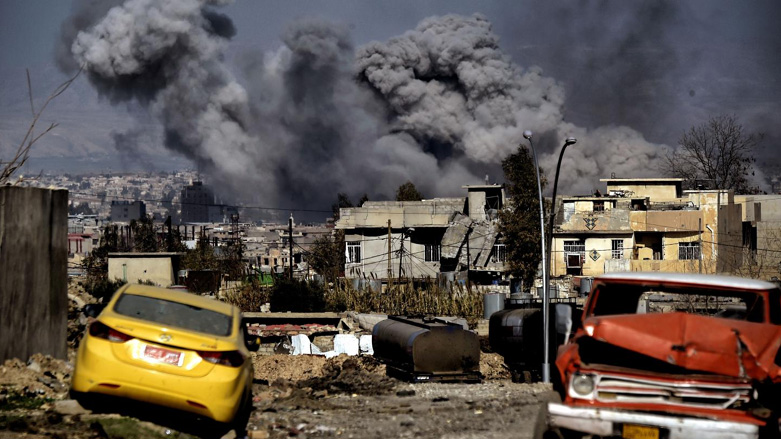Amnesty: Coalition should follow Australia’s lead after admission of 18 civilian deaths in Iraq

ERBIL (Kurdistan 24) – Amnesty International on Friday said Australia’s recent admission of the possibility that 18 Iraqi civilians were killed in one of its air strikes in the city of Mosul was “a step in the right direction,” and called for more information about the incident to be released.
On Thursday, Australia’s Defence Force’s (ADF) Air Marshal Mel Hupfeld acknowledged that as many as 18 civilians “may have” been killed in an attack on a target in west Mosul in which two Australian Super Hornet F-18 jets took part in June 2017.
Australia is a member of the US-led coalition against the Islamic State in Iraq and Syria.
“Once again, the Australian government has proven more willing to take responsibility for causing loss of civilian life than its Coalition partners, including the UK, USA and France,” said Lynn Maalouf, Amnesty International’s Middle East Research Director.
She said, however, that the matter must not end there, stating the ADF should continue to lead by example by providing the further details if necessary to assist in an independent assessment of whether or not the attack and its operations in Mosul complied with international humanitarian law.
“We know that an Australian plane struck a target in west Mosul and unintentionally killed up to 18 civilians in a nearby house,” Maalouf continued.
“In order to understand how this happened the ADF needs to disclose more information, including the type of weapon used in the strike, the nature of the target, what measures were taken to ensure that the target was a military objective, whether other means or methods of attack that would have minimised the risk to civilians were considered, and what was done to collect information about the presence of civilians in the vicinity.”
She noted that the ADF has taken a positive step by acknowledging that their attacks resulted in civilian casualties, but added, “What they must do now is provide the victims’ families with the best chance of achieving justice and accountability. The way to do this is to release the further information required.”
Following Hupfeld’s acknowledgment, Australia’s Defence Minister Christopher Pyne said Australian pilots would not be disciplined as they were acting “entirely within the rules of engagement and under the law of warfare.”
“So there will be no discipline for the pilots involved because they were doing exactly the job they were supposed to do,” he told Australian Channel Nine on Friday morning.
“It was tremendously upsetting civilians were killed and we can't be sure it was [from] Australian [strikes], but in the fullness of transparency, we are prepared to say we could have been responsible.”
Australia ended its air strike operations in Iraq and Syria in January 2018.
From Aug. 2014 until the end of 2018, the coalition conducted 32,297 strikes in both Iraq and Syria, targeting the jihadist group. It has been estimated that at least 1,190 civilians were “unintentionally” killed in that period, the coalition recently declared in a statement.
Editing by John J. Catherine
